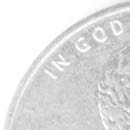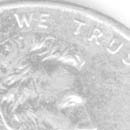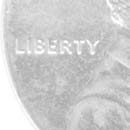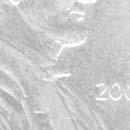I.O.U.S.A. (43 page)
Authors: Addison Wiggin,Kate Incontrera,Dorianne Perrucci
Tags: #Forecasting, #Finance, #Public Finance, #Economic forecasting - United States, #General, #United States, #Personal Finance, #Economic Conditions, #Economic forecasting, #Finance - United States - History, #Debt, #Debt - United States - History, #Business & Economics, #History

But a negative savings rate is very, very detrimental. True capital comes from savings. You should have what you can earn over and above what you have to use to run your business or live on.
This should be savings and that should be used to be loaned out to create more jobs and more wealth. But today, because the dollar loses its value, and then it if earns a little interest then we go ahead and tax people for the interest they ’ ve earned. So if in order to regenerate savings, you should have sound money, get rid of the devaluation of the currency and get rid of all taxes on c11.indd 158
8/26/08 7:00:52 PM
Ron
Paul
159
savings, and then people would go back to savings again. At the same time, we should prohibit the Fed from creating money out of thin air.
Q:
In the ‘ 30s one of the ideas that came out of the Roosevelt
administration was that our federal debt is a public debt, and
therefore we don ’ t ever have to pay it back. But now we ’ re
seeing an ever - larger amount of that debt held by foreign
investors. Do you see that as a threat?
Ron Paul :
Some people argue the case that debt doesn ’ t matter because we owe it to ourselves. There ’ s not much truth to that, because you have to look at the reason the debt occurred, and it usually occurred for a bad reason, say, because they were promoting a program they shouldn ’ t have been promoting. Even if you looked at that argument today, we ’ re owing our money overseas, so that contributes to our current account defi cit when we pay interest to those holding securities, say, in China or Japan or Saudi Arabia, and that ’ s a drain on us. That means we don ’ t even literally pay it to ourselves anymore and therefore it just compounds. The more debt we accumulate overseas, the more interest we pay to overseas creditors, which makes our current account defi cit even worse.
Q:
Do you see the housing bubble as somehow being tied to the
lack of savings today?
Ron Paul :
Alan Greenspan and I got into a little debate when I was complaining about no savings rate, and he says, “ Yeah, but housing prices are going up, and therefore people have savings. ”
I told him that he was getting savings confused with infl ation, because as a consequence of infl ation the nominal price of houses was going up, but that really isn ’ t savings because as something like that can go up in price, it can also go down. And that ’ s exactly what has happened. In the old days, when I bought my fi rst house, I went to a savings and loan, and somebody put money in that bank and I borrowed it and I had to pay it back. That ’ s basically the way a market should work: Somebody should put money in the bank and you should borrow it out.
c11.indd 159
8/26/08 7:00:52 PM
160 The
Interviews
Today, because we don ’ t have any savings, we depend on the Fed, and the Fed creates too much money, lowers interest rates too much and then they create a bubble. How long has it been that many, many good economists have been predicting that the consequence that we ’ re facing is the collapse of the housing bubble. When the markets fi nally realize how damaging this is and how pervasive it is and how it ’ s going to affect all of our other markets, we ’ re going to have a lot more unwinding to do and it ’ s going to affect our whole economy, because housing is a signifi cant part. I ’ m probably impressed that it hasn ’ t stirred the markets up that much yet but I think in time this is going to be much more of an issue in the economy and on the fi nancial markets than it is today.
c11.indd 160
8/26/08 7:00:53 PM










Paul A. Volcker
Paul A. Volcker has had a long and successful career in monetary affairs but is best known as the chairman of the Federal Reserve from 1979
to 1987. Dr. Volcker is lauded for battling infl ation during a time of major economic imbalances in the United States. However, to do so, he had to raise interest rates to an all - time high: 19 percent.
Q:
What do you fi nd interesting about economics, and what drew
you into the profession?
Paul Volcker:
Well, I ’ m not sure it ’ s easy to say what interested me in economics. After I completed university, I debated about what I should do next. I was torn between going to law school, becoming an economist, or becoming a government offi cial. I ended up not becoming a lawyer, but becoming a combination of an economist and a government offi cial. I ’ m not sure I ’ d call myself an economist anymore. It ’ s a long time since I ’ ve been in graduate school.